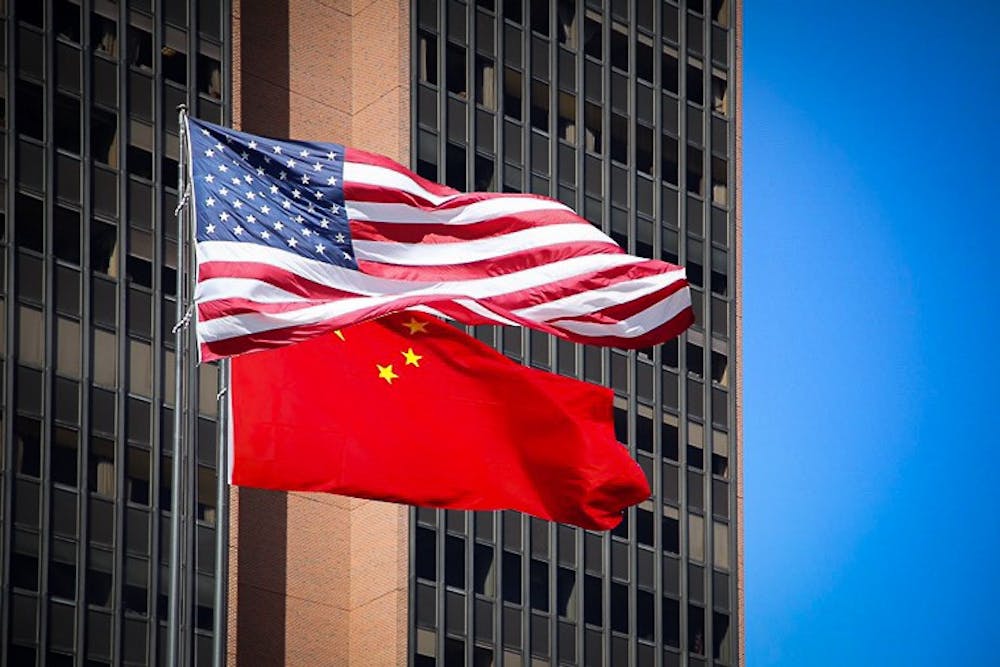To address the increasingly uncertain relationship between the United States and China, Penn’s Center for the Study of Contemporary China has launched a new research project: The Penn Project on the Future of U.S.-China Relations.
Scholars involved with the project, who hail from several different universities, will provide policy recommendations to American lawmakers through a series of papers covering six topics: national security; trade and competitiveness; technology; human rights, law and democracy; climate and environment; and research, education, and academic freedom.
The papers, which will cover one of six topics, will be released every Thursday by topic through Oct. 29. The project will hold webinars the day after each topic’s papers are released to give authors a platform to discuss their ideas and amplify their ideas beyond the text of their papers.
“The increasingly fraught relationship between the two countries has become too big of an issue for us to ignore,” Neysun Mahboubi, a Penn Law lecturer, research scholar for the CSCC, and one of the project’s leaders, said.
CSCC Director and Penn Law professor Jacques deLisle said that with the 2020 presidential election just weeks away, this is a crucial time for transparency regarding the relationship between the United States and China. Tensions were recently highly publicized as President Donald Trump attempted to ban Chinese apps like TikTok and WeChat from U.S. markets.
In one recently released paper regarding national security, "Is the Nucelar Genie Out of the Bottle? Strategic Stability in U.S.-China Relations," assistant professor Fiona Cunningham at George Washington University recommends a more comprehensive dialogue between the two countries that “incorporates both nuclear and nonnuclear strategic capabilities as the best path to forestall a Cold War style arms race and reduce the risks of conflict.”
Part of this process of rethinking the U.S.-China relationship involves bringing next-generation scholars into the project — experts in specific areas of international politics who bring different insights than current senior policy influencers.
“There clearly needs to be some rethinking about how to approach a relationship which is just very different from what it was when the policies that have guided us for the last several decades were put in place," deLisle said.
RELATED:
New co-director of Annenberg media center will lead studies on Black voices in politics
Penn Program in Environmental Humanities kicks off academic year with Climate Week lectures
Although the transition to a virtual format has posed challenges, such as having to adjust to Zoom for their June conference where the scholars presented their first drafts, this has not stopped team members from publishing their findings. Now, the ideas being presented are not only reaching policymakers, like state representatives and members of Congress, but the general public as well, CSCC Associate Director Yuanyuan Zeng said.
“Since we completely switched this to a virtual world, that opens up new horizons, because people from everywhere around the globe can sign up and be a part of it,” Zeng said. “This in a way opens the door to many people who would never be a part of it.”
Once conditions permit, the project team hopes to bring participants from other universities to Penn’s campus to present their papers in person. They also hope to hold other public sessions in the U.S. as well as at the Penn-Wharton China Center in Beijing once it is safe to do so.
The project is funded by Penn’s China Research and Engagement Fund as well as the Henry Luce Foundation.
The Henry Luce Foundation Program Director for Asia Helena Kolenda said, “There’s not a lot of diplomacy happening right now at the national level. There need to be other channels for communication to take place and for information to be shared.”
Kolenda added that the project is particularly important because it highlights the voices of younger scholars who will inherit the field of U.S.-China relations.









